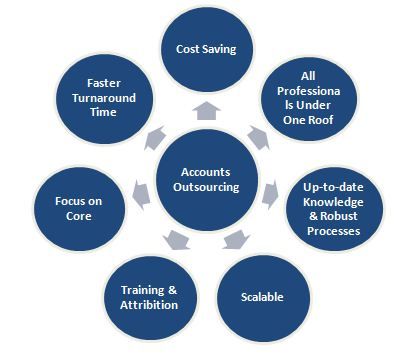In today’s competitive business landscape, companies are constantly looking for ways to optimize their operations and reduce costs. One increasingly popular strategy is outsourcing finance and accounting functions to specialized service providers. This article will explore the benefits and risks associated with finance and accounting outsourcing, and how companies can navigate this complex decision.
The Benefits of Finance and Accounting Outsourcing
Outsourcing finance and accounting activities can offer several advantages for businesses, such as:
1. Cost Savings
One of the primary reasons companies opt for outsourcing is cost savings. By outsourcing, organizations can eliminate the need for recruiting, training, and managing an in-house finance and accounting team. Service providers often work on a cost-effective model, enabling the company to save on infrastructure, technology, and overhead costs.
2. Access to Expertise
Finance and accounting firms specialize in these functions, meaning they have the necessary expertise and experience. Outsourcing grants businesses access to a team of qualified professionals who understand the complexities of financial reporting, compliance, taxation, and other crucial areas. This ensures accurate financial records and adherence to regulatory requirements.
3. Enhanced Focus on Core Business
Outsourcing finance and accounting activities allow companies to concentrate on their core competencies. By delegating routine financial tasks to an external provider, businesses can allocate more time and resources to strategic decision-making and revenue-generating activities. This increased focus on core business activities can enhance overall efficiency and competitiveness.
4. Scalability and Flexibility
As businesses grow, their financial needs may change. Outsourcing offers scalability and flexibility, allowing companies to adjust the volume and scope of their outsourced activities based on their requirements. Service providers can easily accommodate fluctuations in demand, providing a seamless experience to the organization.
The Risks of Finance and Accounting Outsourcing
While finance and accounting outsourcing can be advantageous, it is essential to consider the potential risks involved, including:
1. Data Security and Confidentiality
Outsourcing finance and accounting functions requires sharing confidential financial information with a third party. Therefore, organizations must carefully evaluate the service provider’s data security measures, protocols, and compliance with privacy regulations to ensure the confidentiality and integrity of sensitive information.
2. Quality Control
Outsourcing introduces a new layer of complexity in terms of quality control. Companies need to establish stringent service level agreements (SLAs) and conduct regular performance evaluations of the service provider to maintain an acceptable quality standard. Failure to do so may result in errors, delays, and reputational damage.
3. Communication and Cultural Differences
Outsourcing finance and accounting functions may involve collaborating with a team located in a different geographical region with potential language and cultural differences. Effective communication and understanding can become a challenge, requiring companies to invest time and effort in establishing clear lines of communication and bridging any cultural gaps.
4. Dependency on the Service Provider
Reliance on an external service provider for critical finance and accounting functions means the company becomes dependent on their performance, availability, and reliability. It is crucial to choose a reputable and reliable provider with a proven track record to minimize the risk of disruption to the organization’s financial operations.
Navigating Finance and Accounting Outsourcing
When considering finance and accounting outsourcing, it is essential to follow a robust decision-making process:
1. Define Organizational Goals and Requirements
Identify the specific finance and accounting functions or processes that could benefit from outsourcing. Set clear goals and expectations regarding cost savings, service quality, scalability, and other priorities to guide the outsourcing process.
2. Evaluate Potential Service Providers
Conduct a thorough evaluation of potential service providers, considering their expertise, experience, reputation, compliance with regulations, and security measures. Request client references and review case studies to assess their capability to meet your organization’s unique needs.
3. Assess Risks and Mitigation Strategies
Identify the potential risks associated with outsourcing and develop appropriate mitigation strategies. This could involve establishing strong contractual agreements, conducting regular audits and assessments, and implementing data security protocols.
4. Plan for the Transition
Ensure a smooth transition by developing a comprehensive transition plan that clearly outlines the roles, responsibilities, timelines, and communication channels for both the company and the service provider during the transition phase.
5. Establish Performance Metrics
Define key performance indicators (KPIs) and service level agreements (SLAs) that align with your organization’s objectives. Regularly monitor and evaluate the service provider’s performance against these metrics to ensure the desired outcomes are met consistently.
Conclusion
Finance and accounting outsourcing can provide numerous benefits, including cost savings, access to expertise, enhanced focus on core business, and scalability. However, it is crucial to carefully assess the potential risks and implement appropriate mitigation strategies. By following a structured decision-making process and choosing the right service provider, companies can leverage outsourcing to optimize their finance and accounting functions and drive overall business success.
